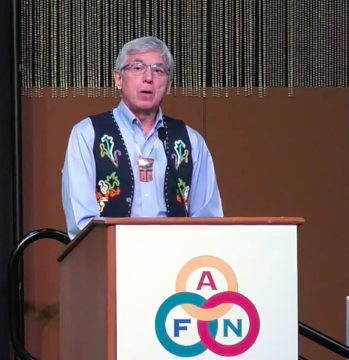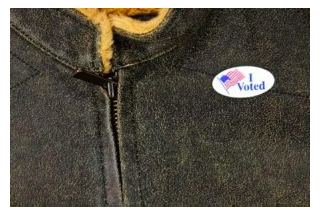#ITAXALASKA
Alaska is not one of the two dozen states that require registration of airplanes. That’s a federal function and there’s not been a need to duplicate it in the 49th state.
Until now.
A new state registration system being proposed by Gov. Bill Walker would put every plane in a database and create a platform for an airplane tax.
Walker is looking to place a $150 tax on private airplanes of any size — whether Cessna 150s or 750s, single engine or turbo props — and a $250 tax on commercial aircraft of any size.
Think of it as a user fee — that’s what the Walker Administration says it is.
The Walker Aircraft Registration Tax, or WART, as critics are calling it, is expected to raise between $1.3 million and $1.5 million a year, a fraction of the motor fuel tax that is also being proposed by the Walker Administration earlier this year, which would raise as much as $80 million a year. Aviation fuels are included in that tax.
The aircraft registration program will cost $30,000 a year to administer. That is the equivalent of a half-time administrative assistant position in the Department of Transportation. There is no enforcement mechanism being created by the regulation, and the state thinks that aircraft owners will pay the fee via the honor system. No penalty will be imposed for ignoring the WART.
A poll conducted by the Alaska Airmens Association and the National Business Aviation Association showed that pilots in Alaska actually favor the motor fuel tax increase over either a registration fee or landing fees, “although a significant number of people responding commented that they opposed any increased fees or taxes.”
It looks like airplane owners are going to get both registration taxes and fuel tax.

In Anchorage, the municipality already charges between $75 and $150 to aircraft owners annually, and a $25 a month late fee. This would mean Anchorage aircraft owners will pay double taxation on their airplanes.
In Juneau, the borough owns and operates the airport, and charges a tax on commercial airlines.
WHAT ABOUT THAT PROPOSED AVIATION FUEL TAX INCREASE?
Senate Bill 25 and House Bill 60, introduced by Walker during the past legislative session, would triple the motor fuel tax, including maritime and jet fuels. Under the governor’s plan, the tax on aviation fuel in 2017 would have gone from 3.2 cents to 6.4 cents for jet fuel and 4.7 cents to 9.4 cents a gallon for aviation fuel. Then in 2018, the tax would have risen again.
Those bills are still alive for consideration in January, 2018 during regular session. The funds generated would be placed in the general fund for distribution throughout the state’s many needs, not just airport maintenance.

REGISTER, PAY STATE, RINSE, REPEAT
As the new regulation-based tax is currently proposed, much of the largest commercial airlines that frequent Alaska would be exempt because they are based out of state.
However, in-state airlines such as Ravn and Grant Aviation, Alaska Seaplanes out of Juneau and Taquan Air of Ketchikan, would be required to pay the tax, whether or not they use airstrips or waterways.
According to DOT, the tax is needed because aircraft owners should help pay for the cost of the aviation system. Commercial rates are set higher as they use the system on a daily or weekly basis, where as weekend pilots or experimental plane enthusiasts put little pressure on the system, according to DOT.
Nonprofits and faith-based groups such as Samaritan’s Purse or Bible camps that own aircraft based in Alaska would not be exempt from the tax. Senior citizens who own planes will not get an exemption, either. Any plane that is operable will be taxed under the proposed regulation, and that tax could be increased — or eliminated — in future years without going through the statutory process.

According to the FAA, there are 7,933 active pilots and 9,346 registered aircraft in Alaska.
Alaska has 400 public airports, 282 land-based, 4 public heliports, 114 seaplane bases, with a total of 747 landing areas (private, public, and military). Lakes, gravel bars, and frozen tundra areas number in the thousands, and are widely used by pilots. Seaplane bases number 114.
Alaska has 306 certified air carriers providing scheduled and on-demand services. Some, like Alaska Air and Delta, are based out of state, the FAA states.
The proposed tax is now open for public comment and public meetings are planned for November:
Nov. 9: 1st Floor Conference Room
Alaska DOT&PF 2-4 pm
3132 Channel Drive, Juneau
Nov. 14: Airport Response Center
Fairbanks International Airport 2-4 pm
5195 Brumbaugh Blvd, Fairbanks
Nov. 20: Central Region Main Conference Room
Alaska DOT&PF 2-4 pm
4111 Aviation Ave, Anchorage
Comments may also be submitted by mail to:
Rich Sewell, Aviation Policy Planner
Alaska Department of Transportation & Public Facilities
PO Box 196900
Anchorage, AK 99519
Or via email to: [email protected]
Comments must be received by 5:00 pm Alaska Standard Time on January 5, 2018.
[Click here to find out more details about the new airplane tax.]
[Click here to read FAA fact sheet on Alaska aviation]















